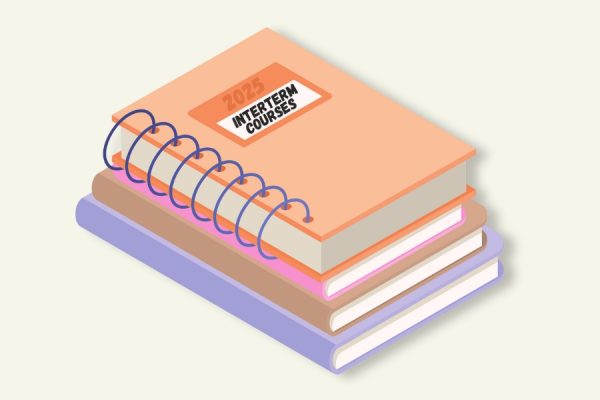Seniors sweep undergraduate history categories
Seniors John Patchen and Michael Preut recently swept the undergraduate categories at the Kansas Association of Historians in Wichita.
Leonard Ortiz, associate professor of history, said this has never happened before.
“I think the fact that they swept, for a small school like Baker that is competing with all the other schools, is a pretty significant accomplishment,” Ortiz said. “I’m proud of these guys. I know it’s a lot of hard work, but it paid off.”
The papers the men, both of whom are history majors, wrote were for classes with Ortiz. For the conference, which was held in April, he picked the papers that had the best information and were relative for the group discussion.
It was in Harlaxton that Preut conceptualized the topic for his senior seminar paper. He said his time abroad really inspired him to write his paper.
“We learned a lot about the peace talks after (World War I) in Harlaxton and the things that happened in Europe,” Preut said. “In the fall, I realized it was something that I really enjoyed.”
When he learned he was going to present at the Missouri Valley Conference, Preut was a little stressed about the commitment.
“Honestly, it was at a point in the semester when I was swamped,” Preut said. “I was pleased I was getting this paper submitted, but still a little overwhelmed.”
But when it came to the KHA, he was a little more excited. And once he was given his award for the best of Category I (papers produced in a senior seminar level course), the achievement made it come full circle.
“It was a nice end to my educational experience, to be able to present an amalgamation of my time here and to be given an award for that,” Preut said.
Patchen wrote his paper about the Kansas Dust Bowl, titled “Surviving the Dirty 30s: A Story of Kansas Farm Families Survival in the 1930s.” He took what he learned from conversations with neighbors and friends and turned it in to a research paper.
Patchen was awarded with the best of Category II, papers produced in a class where the paper is not the focus of the course.
“It was very satisfying to win,” Patchen said. “It was impactful and personal telling of these people’s stories. Maybe the award wasn’t a recognition of my work, but of their stories and what they went through.”
Although Patchen is impressed with his own achievements, he believes that the awards speak more to the Baker History Department.
“I think it really speaks volumes to the hard work that (John) Richards and Ortiz do for the history program,” Patchen said. “I don’t think people recognize the high quality of history students we have at Baker, but more importantly the professors we have here and the program in general.”






